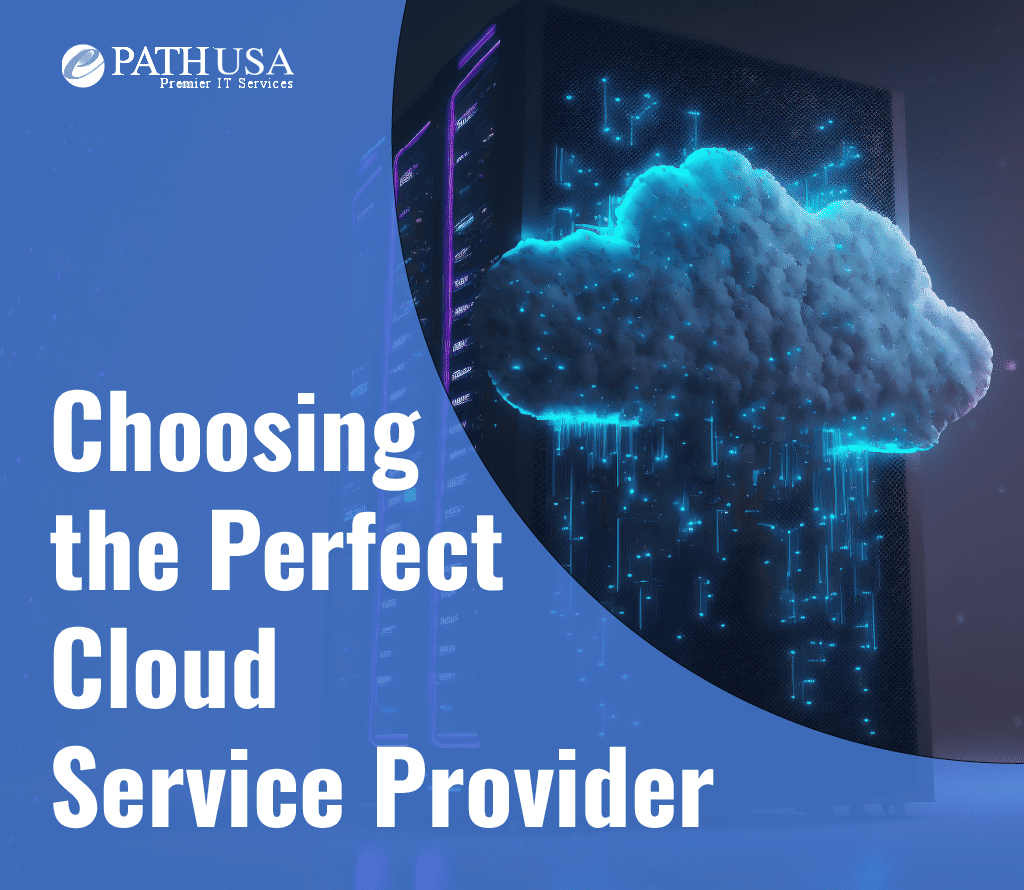In today’s rapidly evolving digital landscape, the decision to adopt cloud services is not just a matter of convenience but a strategic imperative for businesses seeking agility, scalability, and competitive edge. However, with a myriad of cloud service providers vying for attention, selecting the right one can be a daunting task. At ePathUSA, we understand the complexities involved and are committed to guiding businesses through this crucial decision-making process. In this comprehensive guide, we’ll explore essential considerations and provide valuable insights to help you choose the perfect cloud service provider for your unique business needs.
1. Define Your Requirements:
Before embarking on your quest to find the ideal cloud service provider, take the time to define your business requirements thoroughly. Consider factors such as the type of applications you’ll be hosting, anticipated workload, compliance needs, and budget constraints. Understanding your specific needs will serve as a guiding light in your selection journey.
2. Assess Service Offerings:
Cloud service providers offer a vast array of services, ranging from basic infrastructure to advanced platform and software solutions. It’s essential to assess the breadth and depth of services offered by each provider and determine how well they align with your business objectives. Look for providers that not only meet your current requirements but also have the flexibility to accommodate future growth and evolving needs.
3. Prioritize Security Measures:
Security is paramount in the digital age, especially when entrusting sensitive data to a third-party provider. Prioritize cloud service providers that have robust security measures in place, including data encryption, multi-factor authentication, and regular security audits. Additionally, ensure that the provider complies with industry-specific regulations and standards relevant to your business.
4. Evaluate Performance and Reliability:
The performance and reliability of a cloud service provider can significantly impact your business operations. Evaluate factors such as uptime guarantees, latency, and responsiveness to ensure seamless and uninterrupted service delivery. Look for providers with a proven track record of reliability and a global network infrastructure to support your business needs.
5. Embrace Scalability and Flexibility:
Scalability is a fundamental feature of cloud computing that enables businesses to grow and adapt to changing demands seamlessly. Choose a cloud service provider that offers flexible scaling options, allowing you to dynamically adjust resources based on workload fluctuations. Whether you’re experiencing rapid growth or seasonal spikes in demand, scalability ensures optimal resource utilization and cost-efficiency.
6. Understand Pricing Models:
The pricing structure of cloud services can vary significantly among providers, making it essential to understand the cost implications of your chosen solution. Consider factors such as pricing tiers, usage-based billing, and any additional fees for data transfer or storage. Choose a pricing model that aligns with your budget constraints and usage patterns, ensuring transparency and predictability in your cloud spending.
7. Evaluate Customer Support:
In the event of issues or downtime, responsive and knowledgeable customer support can make all the difference in minimizing disruptions to your business operations. Prioritize cloud service providers that offer 24/7 customer support with multiple communication channels, including phone, email, and live chat. Test the provider’s support responsiveness and expertise before making your final decision.
8. Consider Data Center Locations:
The geographic location of a cloud service provider’s data centers can impact latency, data sovereignty, and compliance with regional regulations. Evaluate the provider’s data center locations and ensure they align with your business’s geographic footprint and regulatory requirements. Additionally, consider providers with a global presence to support your business’s expansion into new markets.
Conclusion:
Choosing the right cloud service provider is a critical decision that can significantly impact your business’s success and growth trajectory. By understanding your requirements, assessing service offerings, prioritizing security, evaluating performance and reliability, embracing scalability and flexibility, understanding pricing models, evaluating customer support, and considering data center locations, you can make an informed decision that aligns with your business objectives and accelerates your journey to the cloud. At ePathUSA, we’re committed to empowering businesses with the knowledge and expertise needed to navigate the complexities of the cloud and unlock the full potential of digital transformation.
















